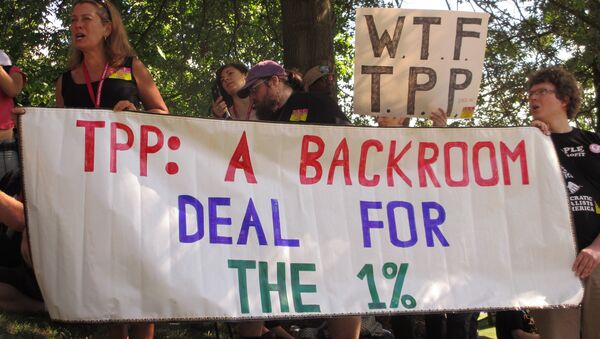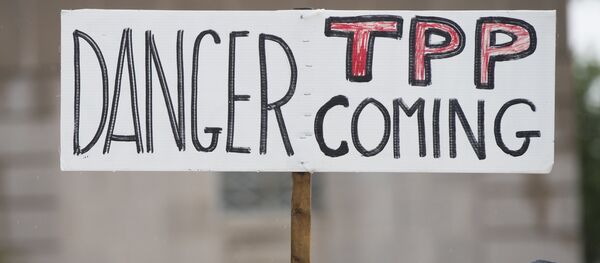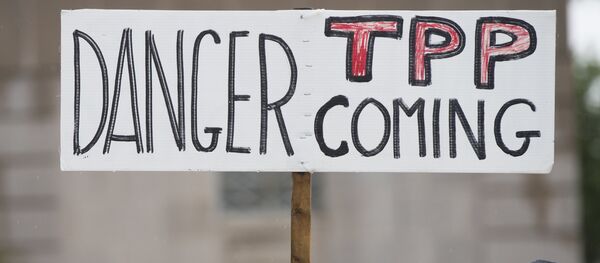MOSCO (Sputnik), Anastasia Levchenko – The 12 parties to the controversial Pacific Rim trade pact agreed on its wording and subject matter on October 5. Signatories to the TPP, which aims to deregulate trade between 40 percent of the world economy, include the United States, Australia, Canada and Japan, among others.
"This is an attempt to attribute a price to the intrinsic value of human life, living things and nature itself," Friends of the Earth US senior analyst William Waren said of the cost-benefit analyses of environmental and health regulations outlined in the deal.
The trade analyst, who examined the full TPP text published by the New Zealand Foreign Ministry last week, further argues that the extension of the patent protections enjoyed by big pharmaceutical companies for their prescription drugs in the pact’s intellectual chapter would effectively "reinforce monopoly pricing power and impose heavy costs on consumers."
"Especially in developing countries, it would effectively deny access to life-saving medicines to millions of families," Waren stressed.
A comprehensive agreement on ways to reduce greenhouse gas emissions to address global warming is expected to be reached at the 21st UN Climate Change Conference (COP 21) in Le Bourget, which will run November 30-December 11.
Waren linked the US’ anticipated contribution to global warming with the anticipated passing of the TPP, whose stated goal is to liberalize trade among the 12 Pacific Rim countries, which together account for about 40 percent of the world’s economy.
"The TPP would significantly expand US exports of dirty energy products such as oil, coal, and liquefied natural gas. This would greatly accelerate climate change," Waren stressed.



